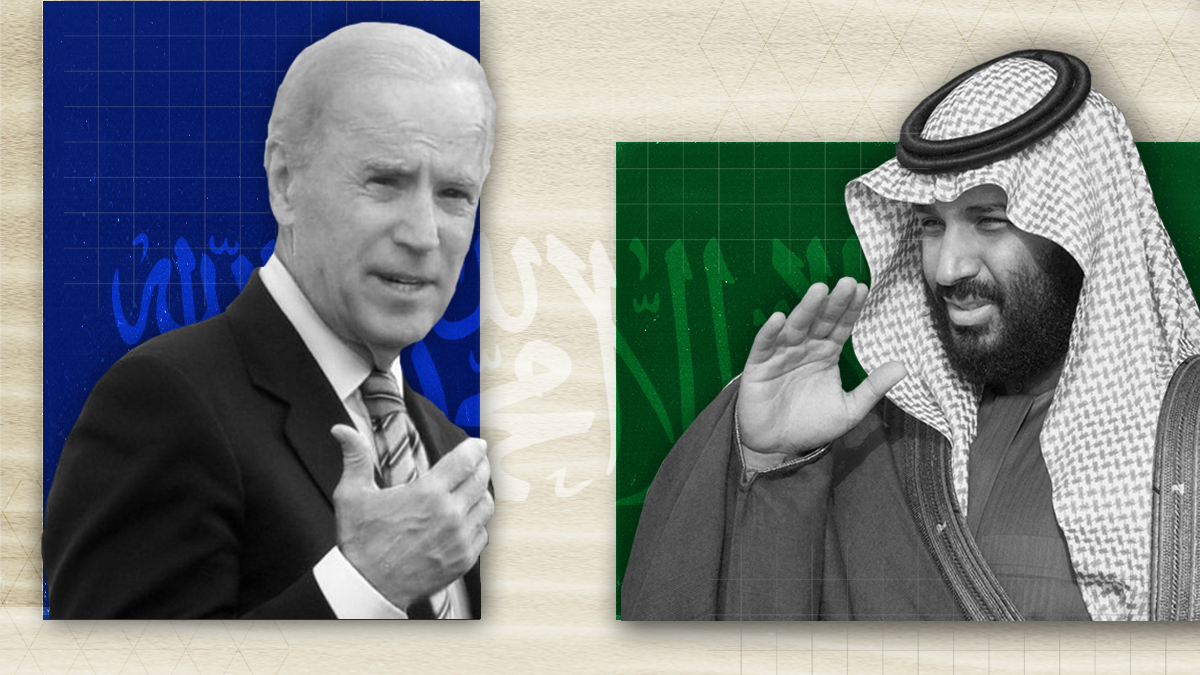US President Joe Biden is currently en route to the Middle East for the first time since taking office, and he’ll be making stops in Israel and the West Bank before making a more controversial swing through Saudi Arabia.
Yes, the same Saudi Arabia that, as a presidential candidate, Biden promised to treat like a “global pariah” because of the kingdom’s grim human rights record, its brutal war in Yemen, and the alleged involvement of the powerful Crown Prince Mohammed bin Salman in the 2018 murder of journalist Jamal Khashoggi.
But that was then, and this is now. With inflation soaring, midterm elections approaching, and prospects for a new Iran nuclear deal receding, Joe Biden is hopping on a jet to Riyadh with a few key issues in mind.
Oil and inflation. Big post-pandemic demand and Russia’s invasion of Ukraine have driven global oil and natural gas prices to their highest sustained levels in almost a decade, dragging inflation up and pushing Biden’s approval ratings down. (Way, way down.)
In principle, the Saudis could flip the switch to produce more oil for Uncle Sam — but will they?
High prices suit them just fine so long as they don't push major economies into a recession, and Riyadh is currently in a pact with other OPEC members “plus” Russia to increase output only gradually.
Whatever Biden says or promises to the Saudis this week, we’ll see the results soon enough: the next OPEC+ meeting is in early August.
Arabs and Israel (and Iran). Biden's efforts to revive the 2015 Iran nuclear never had many fans in Israel or Saudi Arabia, both of which opposed the original pact. But hopes of reaching a new agreement are now flagging badly anyway, with the Islamic Republic back to enriching uranium while de-enriching trust with the West. What's more, Tehran is now reportedly ready to sell Russia drones for use in Ukraine, and Vladimir Putin is set to visit Iran next week.
All of that makes the US especially keen to boost regional cooperation between major Sunni Arab states and Israel, who share a keen interest in containing Tehran.
One big focus on this score is a new US-sponsored air defense alliance for the region, which Israel has reportedly been developing with several Sunni Arab countries, including Saudi Arabia. On this trip, Biden is almost certain to highlight this grouping — which some have even framed as the beginnings of a “Middle Eastern NATO.”
Another is the prospect of closer official ties between Israel and Saudi Arabia. While full Saudi recognition of Israel is unlikely for now because they want a Palestinian state, Riyadh may announce incremental steps like opening airspace to Israeli airlines or to Palestinian pilgrims traveling to Mecca while quietly deepening their behind-the-scenes intelligence-sharing.
Yemen. With the eight-year-old war currently on hold under a tenuous truce between the Saudi-backed official government and the Iran-linked Houthi rebels, Biden will look to press the Saudis to do more to secure a lasting peace. The price for that, however, will likely be resuming US arms sales to the kingdom and helping protect Saudi Arabia from drone or missile attacks by the Houthis, likely to retain control over northern Yemen in any viable peace settlement.
So much for what Biden is after — what do the Saudis want out of all of this?
Satisfaction, for one thing. “The Saudis basically want Biden to eat crow,” says Steven Cook, a Middle East expert at the Council on Foreign Relations.
After two years of being trashed over human-rights issues that had never really come to a head before, the Saudis are happy to see Biden admit that the kingdom is still indispensable to Washington.
But for Cook, there’s a deeper uncertainty that the Saudis want to address. “Every time I’m in the Gulf these days I hear the same thing: ‘we can’t count on US policy.’”
That’s partly because four consecutive US administrations have vowed to leave the region, says David Gordon, a senior adviser to Eurasia Group and the former head of policy planning at the US State Department. “That’s a lot easier said than done, obviously, but it creates an expectation that the US wants out.”
Throughout that time, of course, US policy has oscillated wildly. For Obama, the way out was the Iran deal. Trump then tore up that agreement, embraced the Saudis unconditionally, and brokered closer Arab-Israeli ties to contain Iran locally. Then Biden walked that back and ignored the Saudis while unsuccessfully re-engaging with Iran, only to come back now to kiss the ring.
With little clarity about the balance of power in Washington after the upcoming US midterms, let alone the 2024 presidential election, the Saudis want to get back to something that looks more predictable, says Gerry Butts, Eurasia Group's vice chairman.
“For the Saudis, this visit is about narrowing the oscillations in policy and bringing things back to normal, so that it doesn’t really matter to them again [who’s] in the White House.”
- Biden-MBS meeting was "total win" for Saudis, says expert - GZERO Media ›
- Saudi Arabia’s repressive power politics - GZERO Media ›
- Activist Loujain al-Hathloul is far from free in MBS's reformed Saudi Arabia - GZERO Media ›
- Ukraine taking the battle to Russia - GZERO Media ›
- China brokers deal between Iran and Saudi Arabia - GZERO Media ›
- Blowback on MBS from Khashoggi murder saved many other journalists, says expert - GZERO Media ›
- Oil, entitlement, & how MBS is changing Saudi Arabia - GZERO Media ›
